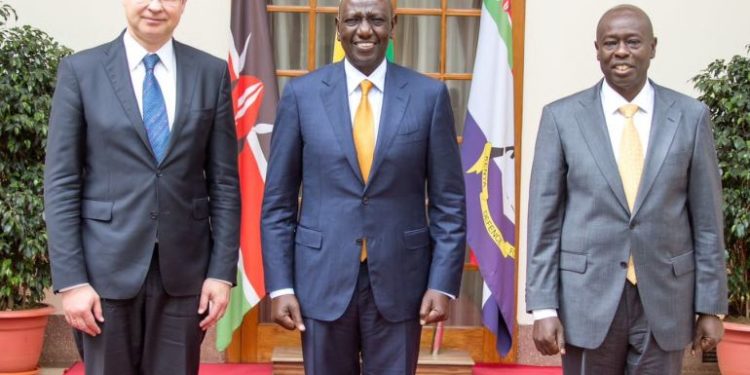Kenya and the European Union (EU) have finalized their 8-year negotiation to ink an economic partnership deal that will see both parties benefit. The EU is the largest trading bloc in the world, accounting for 15.0% of both global imports and exports. With the EU getting concerned by China’s increased involvement in the world, it has increased its involvement in Africa, where the Global Gateway Aid Initiative pledged Kshs 22.7 trillion in Africa for the period 2021–2027.
Read more: Domestic Needs inform Kenya’s neutrality to world powers’
With Kenya being among the largest economies in Africa, the EU, through the European Investment Bank and EU members, has in the past shown interest by launching Ksh 689.0 billion in support of the government’s Big Four Agenda, with the EU having priorities in accountability and governance, sustainable infrastructure, employment creation, and resilience building. The EU and its member countries are the major sources of funding for Kenya currently.
The new economic partnership deal is set to boost trade ties and economic development between the EU and Kenya, which will see Kenya enjoy duty-free and quota-free access to the EU markets for all exports like flowers, coffee, and minerals, as well as open more imports from the EU.
Read more: Kenya eyeing Kshs. 1.3 trillion UK trade deals
The EU is currently the biggest market for Kenyan exports, accounting for 21.0% of the total Kenyan exports, with a total of Ksh 197.5 billion in exports and Ksh 303.9 billion in imports recorded in 2022. The EU also stands as the biggest market for Kenyan flower exports at 70.0%, while creating more than 500,000 direct and indirect jobs in Kenya in the flower sector.
President William Ruto acknowledged the importance of having the EU as a trade and investment partner, as the deal is set to help Kenya deal with the economic challenges it’s facing currently, like currency depreciation and rising fuel prices resulting from the Russia-Ukraine war.
The EU trade commissioner, Valdis Dombrovskis, named Kenya as a potential partner, hence the EU’s interest in signing the economic partnership.


















